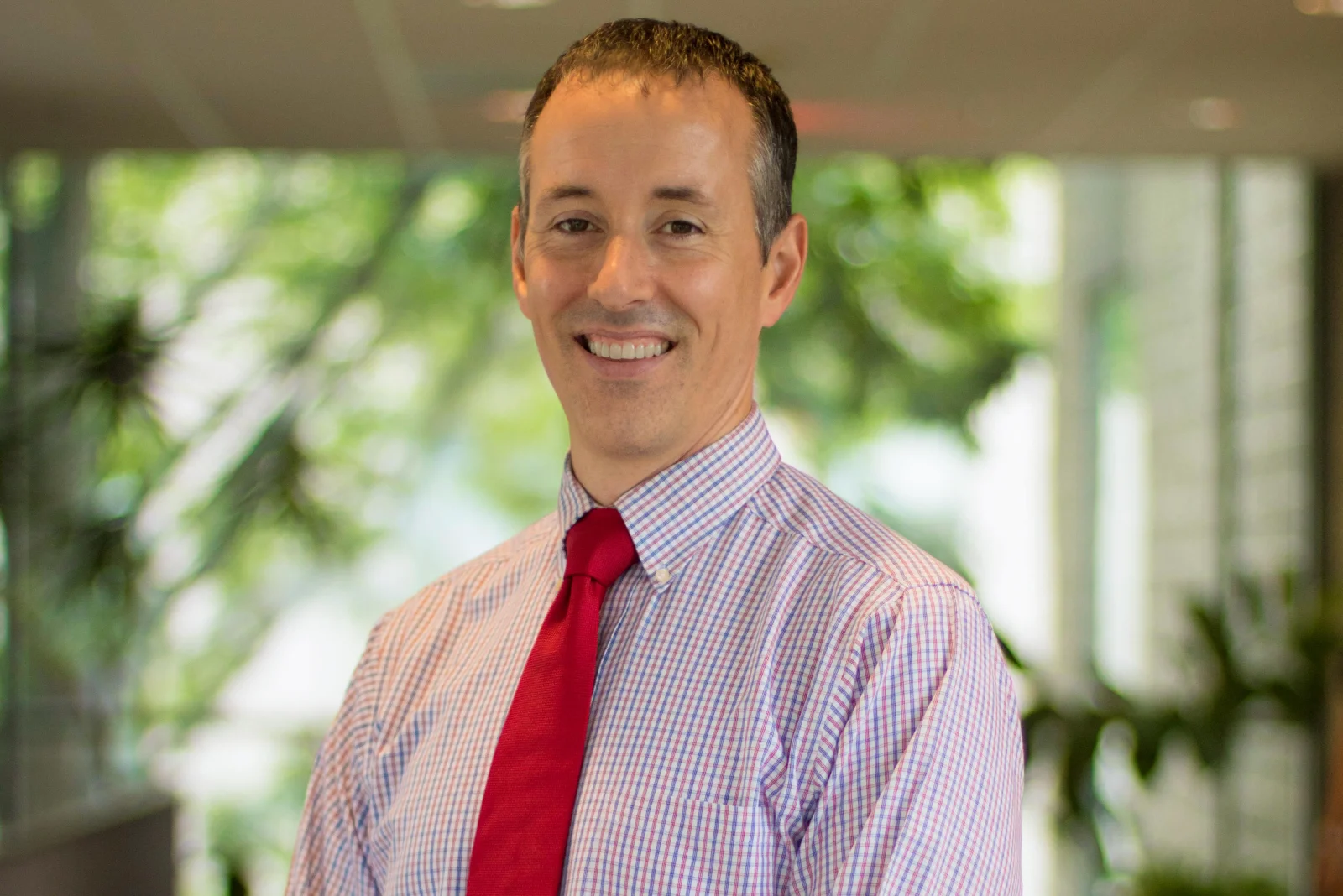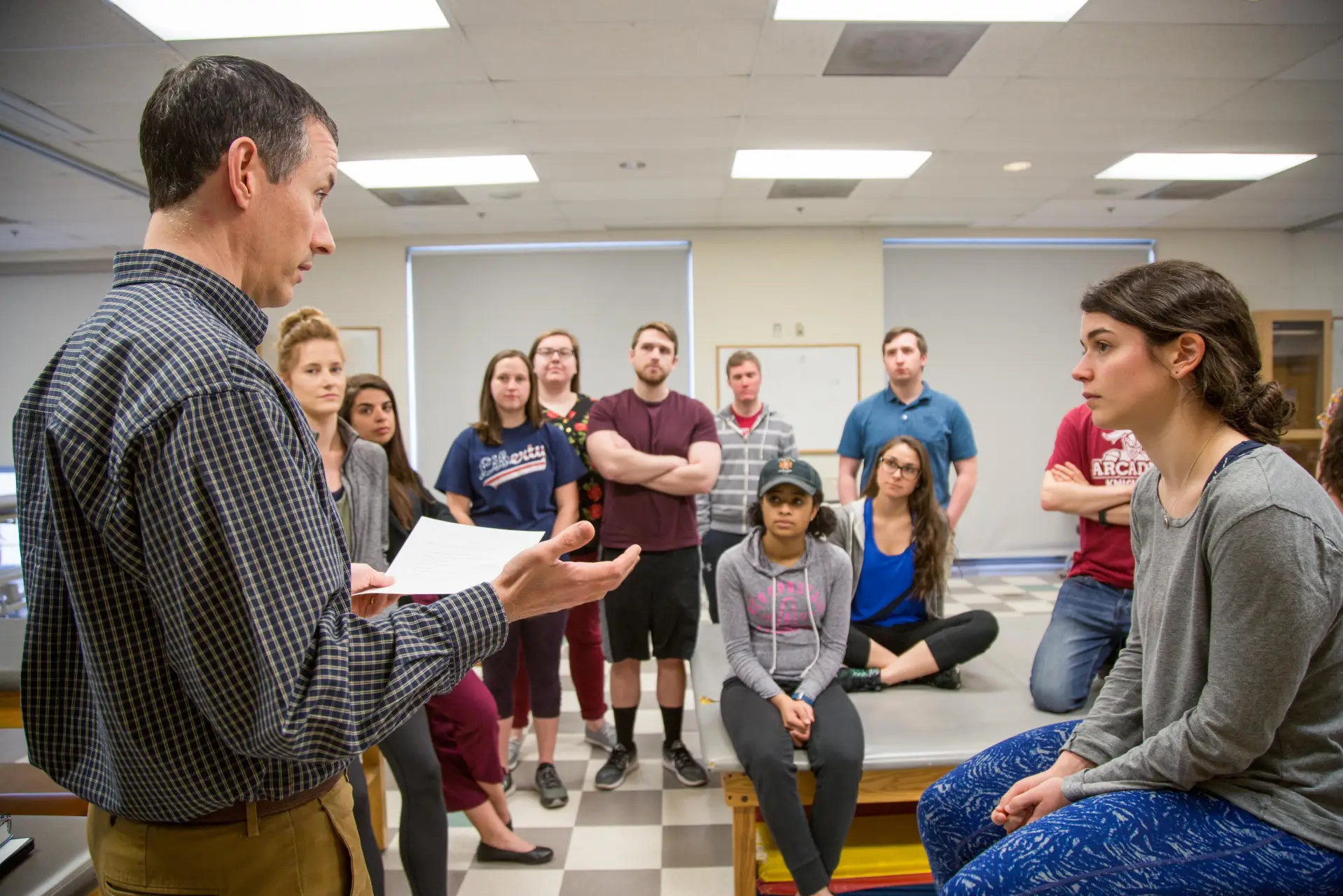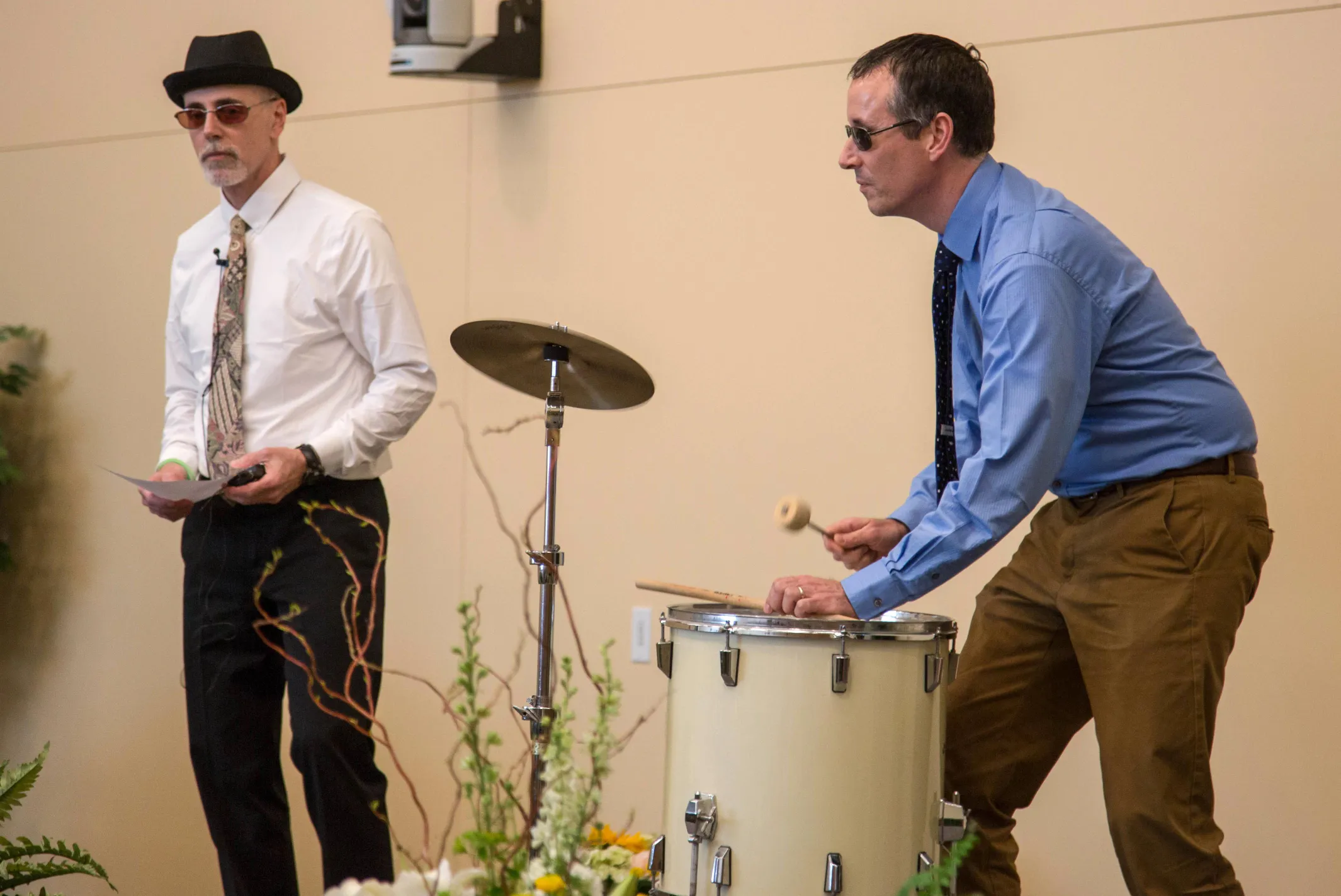Dr. Michael Tevald Challenges Physical Therapy Students to Improve Patient Care

Dr. Michael Tevald
Associate Professor of Physical Therapy
Director of Post-Professional Programs
Expertise: Impact of aging and chronic disease on skeletal muscle physiology and performance
Research Focus: Evidence-based Rehabilitation Strategies, Skeletal Impairments, and Lung Transplantation on Skeletal Muscle
Advice for Students: “Be prepared to interact and expect to be challenged in my classes. It’s okay to come up with the wrong answer; exploring ideas is an important part of the process of learning to think critically, and you learn as much or more from your mistakes than your successes.”
Experiential Learning Instead of Straight A’s
Dr. Michael Tevald, associate professor of Physical Therapy and director of Post-Professional programs at Arcadia, encourages PT students to shift their focus from getting straight A’s to understanding how to apply knowledge, solve problems, and make better patient care decisions.
“Physical therapy students tend to be competitive because they are accustomed to excelling academically,” he said. “I advise students to direct their focus toward gaining a deep understanding of the content and using that understanding to solve patient problems. In the real world, patients don’t always present in the same way they do in textbooks.”

In one of Dr. Tevald’s labs, where he teaches cardiovascular and pulmonary physiology content, students examine exercise tests for four people with different physiology: an athlete, a healthy sedentary person, a heart transplant recipient, and a person with a spinal cord injury. Students use their understanding of bodily response mechanisms to compare and contrast the exercise test results, gaining experience in analyzing how medical conditions influence patients in different ways with varied results.
Another course provides medical role-play experiences in which students interact with actors who serve as standardized patients. Students can practice their interpersonal and patient management skills with feedback from both Physical Therapy faculty and the patient actors. These interactions offer students invaluable insight into how patients may respond to their approaches.
“Listening to patients is critically important for many reasons,” Dr. Tevald explained. “Clinicians need to get a full picture of what’s going on by asking the right questions and understanding what is happening with their patients. They also have to develop a caring therapeutic relationship based on trust that will help carry patients through difficult treatments that they may not want to do.”
Physical Therapy students participate in experiential learning opportunities in local senior living centers, senior facilities, and the Dan Aaron Stay Fit Program for people with Parkinson’s and multiple sclerosis. Students also have the option to be part of international service learning in Guatemala, Jamaica, and Haiti, where they work as emerging health professionals under the supervision of licensed physical therapists.
“Arcadia students are in local and global communities in a variety of locations and clinical settings,” Dr. Tevald said. “Sometimes, the best education is talking to someone whose life experience is different than yours.”
A Passion for Science, Teaching, and Research
Dr. Tevald has always enjoyed science, taking an athletic training elective in high school that piqued his interest in a dynamic health care career. He received a Bachelor of Arts in Biological Sciences and a Master of Physical Therapy from the University of Delaware. At the Washington Hospital Center in Washington, D.C., he worked in the intensive care unit with heart failure and transplant patients. He received a Ph.D. from Virginia Commonwealth University, where he studied oxygen transport in microcirculation under the guidance of a well-regarded Physiologist and later completed post-doctoral training in Kinesiology at the University of Massachusetts in Amherst. His post-doc studies in muscle physiology, specifically on muscle alterations in older adults, kick-started what later evolved into his research focus.
Then, Dr. Tevald realized his excitement for both learning and teaching new ideas and strategies. After teaching for six years at the University of Toledo, his first faculty position, he was ready to return to the East Coast.
In 2016, Dr. Tevald joined the Department of Physical Therapy (DPT) at Arcadia, where he began teaching cardiovascular, pulmonary, and acute care content. The DPT program’s innovative curriculum, paired with a collaborative learning environment, attracted him to the University. “Because courses are team-taught, the curriculum is entirely integrated within an environment that celebrates collaborations, and that’s the most exciting part about it,” Dr. Tevald said.
Through teaching relationships with clinicians from the Hospital of the University of Pennsylvania, he began developing opportunities for collaborative research. Dr. Tevald joined his fellow researchers who had launched a research study that examined the impact of frailty on lung transplants recipients. Together they determined that with extra focus on muscle and what physical therapists can do in terms of a patient’s muscle function, their trajectory, and their prognosis, clinicians can use therapeutic interventions and get the most out of returning patients to function.
In 2018, Dr. Tevald and his team received the first-ever Acute Care Research Grant, made possible by the Academy of Acute Care Physical Therapy (AACPT), for their project titled “Early Impact of Lung Transplantation on Skeletal Muscle.” The $40,000 grant has provided funding for Dr. Tevald’s team to investigate hospitalization and post-surgery factors that can cause prolonged mobility limitations in elderly and chronically ill patients. Their research aims to help providers identify rehabilitation strategies to offset long-term issues and improve physical function in their patients.
While transplant surgeons have been interested in Dr. Tevald’s findings, physical therapists must advocate for better communication with medical teams and more efficient patient acute care measures.
“One of the most significant predictors of a given outcome is to assess frailty, mobility, and muscle measures,” Dr. Tevald said. “Physical therapists play a big role in helping transplant teams get a better picture of a patient’s ability to thrive well beyond their lung transplant. There are pieces that physical therapists can add that give a much richer picture of their patient’s prognosis.”
The Beat of a Different Drummer


Outside of the classroom and the research lab, Dr. Tevald enjoys spending time with his family. His three daughters—two teens and a ten-year-old—keep him busy at home. It’s here that Dr. Tevald gets to spend time with two of his favorite pastimes: cooking and drumming.
“I think I’m a better cook than I am a drummer,” he laughed. “I hope I’m a better cook than I am a drummer because I’m not a very good drummer!”

